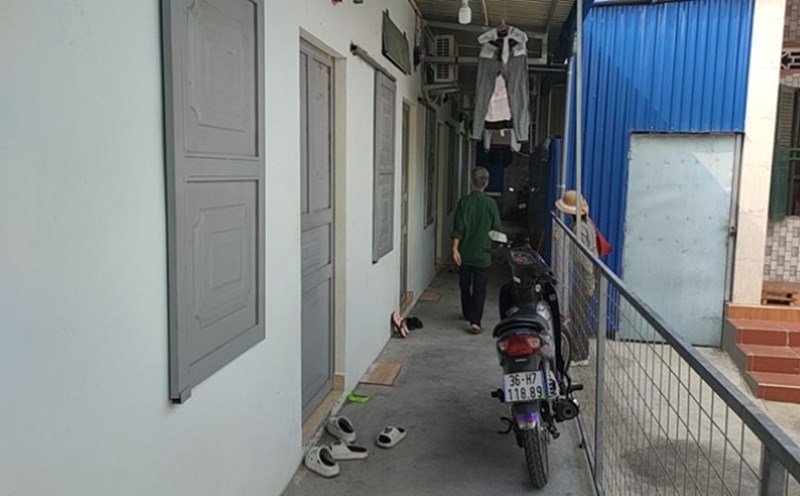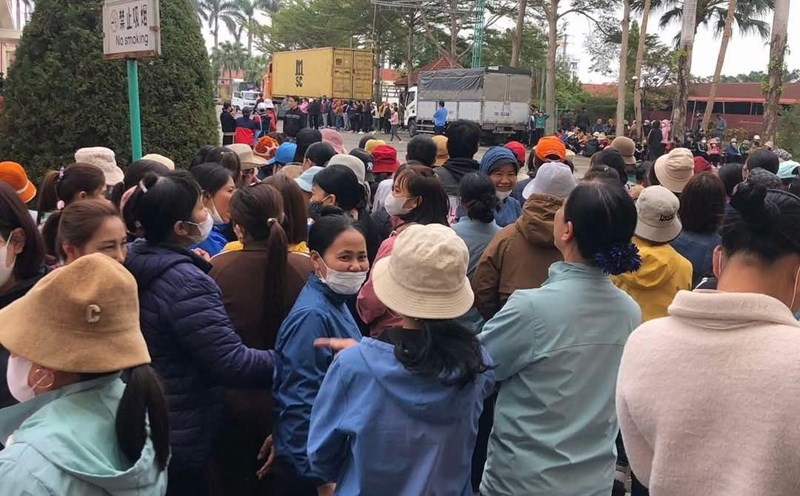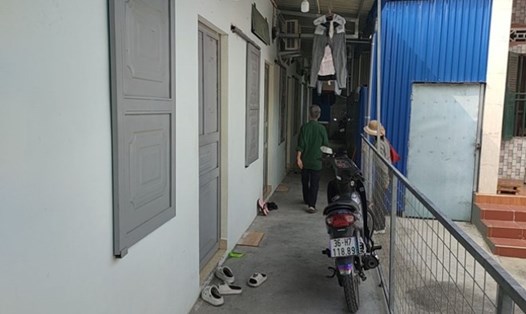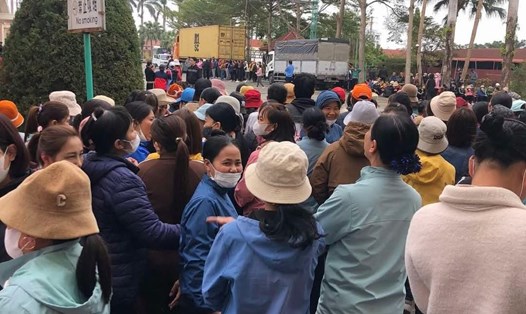Previously, as Lao Dong reported, at 1:30 p.m. on February 17, thousands of workers at Tam Cuong Shoes Factory (under Dinh Vang Company Limited, located in Nam Am village, Tam Cuong commune, Vinh Bao district) stopped working collectively, made recommendations on Tet bonuses, shift meals, overtime meals... As of the morning of February 18, some workers had not yet agreed with the resolution of the enterprise's leaders, did not go to work, and gathered in the factory's yard.
Trade unions at all levels coordinate with local authorities to work with business leaders, propose solutions to stabilize the security and order situation. After that, the company agreed to resolve the petition: support for shift meals from VND 15,000 to VND 8,000/hour (this amount will be added to the salary for employees). The Tet bonus is adjusted for employees who have been working at the factory for 3 years or more and receive 1 month of basic salary (instead of 7 years as before), the remaining amount is calculated according to the ratio. Meals for overtime workers will be 6,000 VND/meal (added to salary). After that, the workers returned to work.
According to the Hai Phong City Labor Federation, although Dinh Vang Company Limited basically complies with the provisions of the law on salary, social insurance, health insurance, and unemployment insurance for employees. However, regarding other welfare regimes, the company has not promptly grasped the proposals and recommendations of employees, has not adjusted them promptly, in accordance with the actual situation and the general level between enterprises in the area, leading to collective work stoppages of employees.
After this incident, the Hai Phong City Labor Federation directed the City Industry and Trade Union to regularly grasp the situation and direct the guidance of the Dinh Vang Company Limited Trade Union to improve the quality and efficiency of the activities of the trade union team leaders and factory trade union officials. Especially in grasping the thoughts and recommendations of workers to report to the higher-level Trade Union and the Factory's Board of Directors for timely resolution. The trade union focuses on monitoring the implementation of legal regulations and welfare regimes, especially the quality of shift meals for workers.











